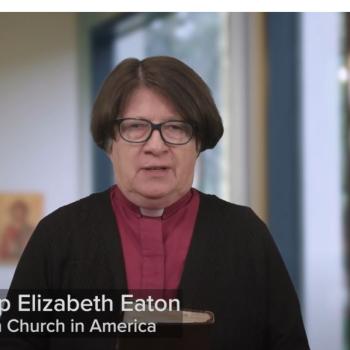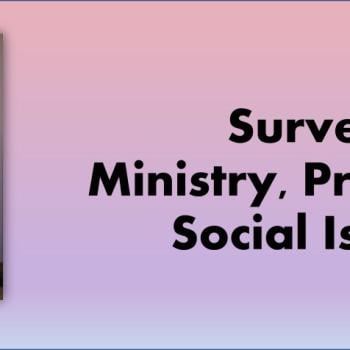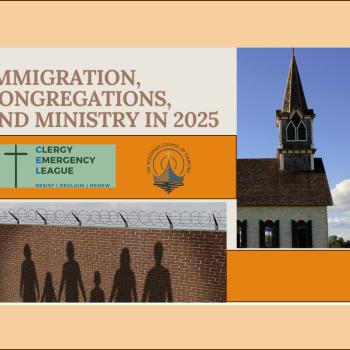The way Kentucky Governor Andy Beshear conducts his daily COVID-19 briefings is a master class in how to be and do church more effectively.
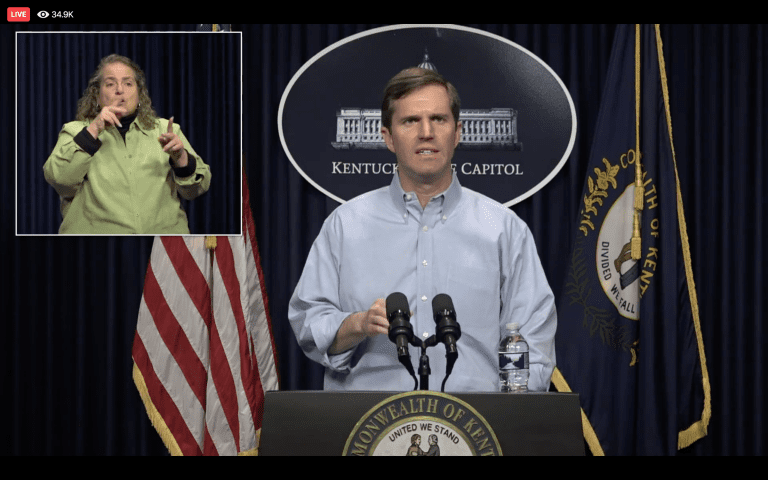
On March 6, 2020, Kentucky Governor Andy Beshear declared a state of emergency after the first COVID-19 patient was identified in the state. Since then, Gov. Beshear has held a briefing every day at 5:00 p.m. Like President Franklin Roosevelt’s “fireside chats” during the 1930s and 40s, these briefings have become a mainstay of information, clear-headed leadership, and positive encouragement for the people of Kentucky. In the midst of the coronavirus and the chaotic leadership at the federal level, the those in Kentucky and beyond have come to rely on Beshear for steady, forthright, and compassionate guidance.
As an ordained pastor and seminary professor who teaches preaching and worship, I’ve been fascinated by the way Beshear conducts these briefings.
What he is doing in these daily updates draws on many aspects of ritual, symbolism, formation, identity, and pastoral care that make up Christian life in community. And from a sociological perspective, they are a study in how ritual functions to preserve the fabric of society.
We in the church can learn a lot from Governor Andy Beshear about how to be and do church more effectively.
5 Lessons from Gov. Andy Beshear’s COVID-19 press briefings about how to do and be church
1. Symbols convey meaning
On March 21 after the third COVID-19 death in Kentucky, Governor Beshear announced that the governor’s mansion would be lit in green. Since then he has encouraged Kentuckians to also light their houses in green. Why this particular color?
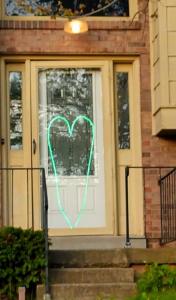
“Green is the color of compassion, it’s the color of empathy. It’s also a color of renewal. According to my faith, when you pass from this world, your body is just a vessel and your soul moves to an ever better and more special place,” says Beshear. He also says that this gesture “lets people know that we are thinking about them, that we care about them, that we love every single Kentuckian around us.”
Beshear also encourages people to ring bells at 10 a.m. every day. This practice began in March after Beshear ordered worship services to be suspend in order to prevent the spread of the coronavirus. But he encouraged houses of worship to ring their bells at 10 a.m., and for citizens to do the same. “This just reminds us that we’re all here and we are going to make it through and come out of this together,” he says.
Since its inception over 2000 years ago, the Christian church has understood the power of symbols to convey meaning and to express emotions that anchor us to the community. Whether it’s the dove of baptism, the flame of Pentecost, or the cross of Jesus’s crucifixion, symbols are ordinary images that point to something beyond themselves. They transcend differences and unite people in shared meaning and identity. Churches can point to Beshear’s green light and ringing bells as an example of why symbols are so powerful and so necessary.
2. Ritual matters
Rituals are ceremonial actions or observances that can be done in both religious and secular settings. Rituals create “sacred” time and give meaning to the ordinary. In his book Religion: The Basics, Malory Nye says that there are eight ways of looking at ritual activity to help map out how and why a particular ritual is important. These categores are Meaning, Symbolism, Communication, Performance, Society, Repetition, Transformation, and Power.
Beshear understands the need for consistent, repeated actions, words, and phrases within a defined time set apart, making it almost sacred. In our house, 5:00 is dedicated to watching and listening to Governor Andy. I prepare dinner for my family while I listen. Then we all sit down to eat together to discuss what he said.
Ritual is also evident in the repeated pattern within each briefing. It’s what worship geeks called the ordo – the pattern of worship that is repeated each week. Each press conference starts and ends the same way. And there are basic elements that happen each time:
“We will get through this. We will get through this together.”
This is one of Beshear’s signature phrases. He says it at the beginning and end of each briefing. He even asks people to say it with him, like we would in a Sunday School lesson or children’s sermon during worship. And you know what? I say it with him. Every time. And you know what else? I feel better when I say it. It’s effective. It works.
In the church, saying the Lord’s Prayer together, greeting each other with words of peace, reciting creeds and prayers in unison all function to create shared experience that defines us as a worshiping community.
The Ten Steps
Like Moses’s Ten Commandments in the Bible, Beshear repeats the Ten Steps for Beating the Coronavirus. He usually focuses on one or two to emphasize like a Bible lesson or homily. Why does he repeat them? Because he wants them to become ingrained in our minds and practices.
Churches, too, can and must repeat the central teachings and moral/ethical guidelines of the faith on a regular basis.
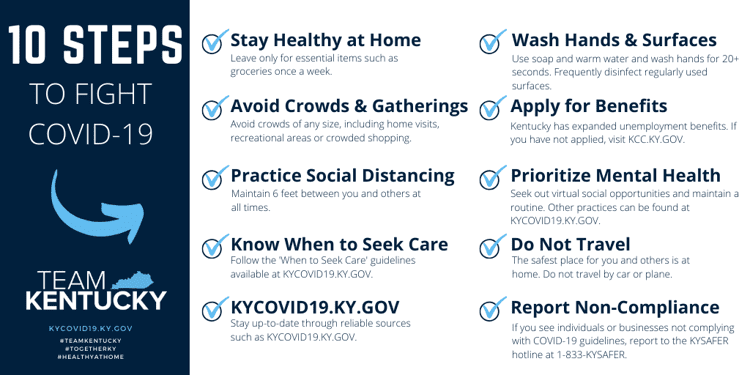
Commemoration of the dead
Beshear has said that one of the hardest parts of his job as governor is to report on the number of citizens who have been diagnosed with the coronavirus and to announce those who have died. This moment in the briefing is solemn and holy. Whatever I’m doing, I stop to give my full attention when he lists the ages and counties of the dead. This is sacred time.
And this is why many were horrified when protestors gathered outside one day with megaphones and bull horns demanding that they be allowed to go back to work. It was deeply offensive and sacrilegious to have this time interrupted. There are certain times and actions that must be respected.
Churches, too, have sacred moments within their worship services to lift up the names of the sick and those who have died. This also shapes who we are because we remember that when one of us is hurting, we are all hurting. As Paul wrote to the Corinthians: “If one member suffers, all suffer together with it; if one member is honored, all rejoice together with it” (1 Corinthians 12:26).
Q & A with the Press
Each briefing ends with time for questions and answers with members of the press. This is when the community has a chance to speak, to ask for clarification, to seek more information, and to press the Governor on certain points. It allows for other voices and enables an exchange between the leaders and the people.
This kind of Q&A is something I rarely see in churches on a week-to-week basis. But it may be something congregations should consider. Can we make time at the end of each worship service for people to ask questions, seek more information, probe for clarification, and engage in a robust exchange between pastor and congregation?
Benediction and Postlude
Each briefing ends the way it begins – with encouragement. He reminds to use the hashtags on social media, to ring bells at 10 a.m., and to light up our houses in green each night. “We will get through this. We will get through this together,” is the final benediction. Then a video highlighting Kentuckians embodying some aspect of the Ten Steps is shown as a sort of postlude to conclude the briefing.
I’ve heard some church folk (usually teens) complain about the repetitive nature of church. Each week we do the same things in the same order. While there is variety in the readings and sermon week to week, the other elements of the service remain unchanged. But there’s a reason for this. Repetition provides stability, familiarity, and a shared practice that forms the identity of a people. Sociologist Emile Durkheim insisted that ritual provides a society with solidarity and holds people together.
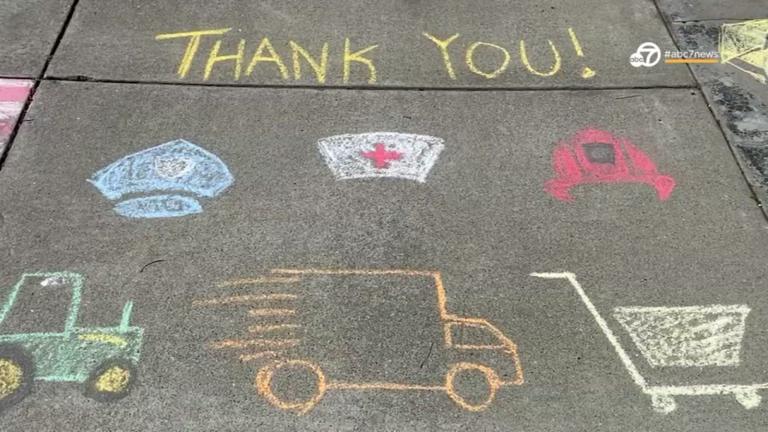
3. Identity shapes action
Beshear constantly appeals to who we are as Kentuckians and as Americans. “We are special people here in Kentucky. This is a special place in this country to live and raise a family,” he tells us. He encourages people to have pride in their state and their country and to show this pride by following the Ten Steps. His team has also come up with simple catch-phrases and hashtags that they can put in their social media posts signaling who they are and what they believe in:
#TeamKentucky #TogetherKY #Patriot #HealthyAtHome
In all of this messaging, there is a balance between the collective and the individual. “We need you. Your state needs you. Your country needs you,” Beshear says when imploring us to follow the rules and keep our neighbors safe.
Churches, too, can encourage their congregants to feel pride in their identity as Christians and in their service to each other and the community. Cultivate team spirit. Take pride in the accomplishments of the collective. And encourage everyone to do their part within the Body of Christ (1 Corinthians 12:12-27).
4. Feature young people, those who are differently-abled, and those who work behind the scenes
Beshear’s press conferences almost always feature what Jesus called “the least of these” – those who have little power within society, those who are most vulnerable, and those whose important work often goes unnoticed.
Beshear features children and teens.
He shows pictures of children doing chalk art with beautiful images and positive messages. He shows videos of teens encouraging us to exercise while staying #HealthyAtHome. Once he displayed pictures of children giving away toilet paper. “That’s being a good neighbor. That’s making sure everyone has enough.” Straight outta Sunday School!
The church can and should recognize young people as well. Recognize children who are doing virtuous things and demonstrating positive qualities. Even if they aren’t members of your congregation, seek out ways to support children in local schools, create contests for them to contribute entries of art, poetry, and music. And then recognize them publicly.
Beshear features those who are differently abled.
Allowing us to see children with Down’s Syndrome, those in wheelchairs, and those who use sign-language normalizes those who are marginalized within society. On April 10, he invited Virginia, his sign-language interpreter, to the podium to teach us sign-language for “We will get through this together.” No longer just an auxiliary – she was center-stage. This sends a powerful message of inclusion and a willingness to learn from those who are differently-abled.
Churches can support those who are differently abled by making their building and worship space more accessible to those with mobility issues. Provide resources for those who need assistance with hearing or blindness. Advocate for those who are differently-abled, even if they aren’t members of your congregation.
Beshear acknowledges the people who are doing good work.
Beshear makes a point to recognize the partners who are working to help the state get through the coronavirus crisis. Healthcare workers, first responders, nursing home workers, utility workers, grocery store clerks and other who work behind the scenes are all given shout-outs at various times. He publicly recognizes that the task is more than the government can do alone. So he reaches out to networks beyond his immediate sphere in order to galvanize and activate the community.
He also gives kudos to his staff and others instead of taking credit himself. More importantly, he credits the people of Kentucky. “I can give the orders, but it doesn’t matter if you don’t follow them. This is your accomplishment. Be proud of this. And let’s continue to do better.”
Churches can and should do all of this as well. Partnering with agencies outside the church to do the work of upbuilding the community and advocating for the least of these is a way to be a good neighbor. And it’s important to give credit to staff and volunteers for what they do on a regular basis.
5. Remind people that they are loved and cared for

I’ve heard people say that watching Governor Andy Behear in these briefings is like watching Mr. Rogers because of the comfort, positive affirmation, and sense of caring they feel. Beshear has a unique ability to communicate with people right through the screen. Even when he has to admonish those who aren’t following the rules, he does it in a way that encourages us to be our best selves. “We can’t be doing that,” is one of his famous catch-phrases. It’s about us.
He also encourages us in a way that appeals to the better angels of our nature. “We have a state filled with good people who are willing to help,” he says when encouraging people to donate PPE or to give to the Kentucky Fund.
And when he shows the graph of Kentucky flattening the curve more than almost any other state, he says: “I am so proud of you and how you are doing.”
How many of us hear this on a regular basis? That someone is proud of us? Some of us have rarely or never heard these words spoken to us with conviction and heartfelt sincerity. But we’re hearing them now, at just the right time, and in just the right way.
Churches can use Beshear’s words as an example to remind people that this is what it feels like to be seen, to be cared for, to be loved. This is what it means to be the people of God, to be a member of this church, to be a Christian.
Of course, I could have titled this piece, “What Andy Beshear Learned from Church for Guiding Kentucky through COVID-19.”
Governor Beshear often mentions that he is a member of Beargrass Christian Church (Disciples of Christ) in Louisville, Kentucky. He talks about how his faith has been a support through this challenging time. He has obviously paid attention to what happens in worship and in the life of the church. Beshear intuitively understands the necessity of ritual, symbols, ethical “commandments,” and the power of positive leadership.
As a citizen of Kentucky, as a pastor, as a seminary professor, and as a Christian, I am grateful for Beshear’s leadership.
Read also:
A COVID-19 Easter: The Gospel of Mark is Just What We Need
6 Tips for Avoiding Zoom Fatigue in the Age of COVID-19
When Earth Demands Sabbath: Learning from the Coronavirus Pandemic
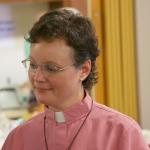
Leah D. Schade is the Assistant Professor of Preaching and Worship at Lexington Theological Seminary in Kentucky and ordained in the ELCA. Dr. Schade does not speak for LTS or the ELCA; her opinions are her own. She is the author of Preaching in the Purple Zone: Ministry in the Red-Blue Divide (Rowman & Littlefield, 2019), Rooted and Rising: Voices of Courage in a Time of Climate Crisis (Rowman & Littlefield, 2019), and Creation-Crisis Preaching: Ecology, Theology, and the Pulpit (Chalice Press, 2015).




